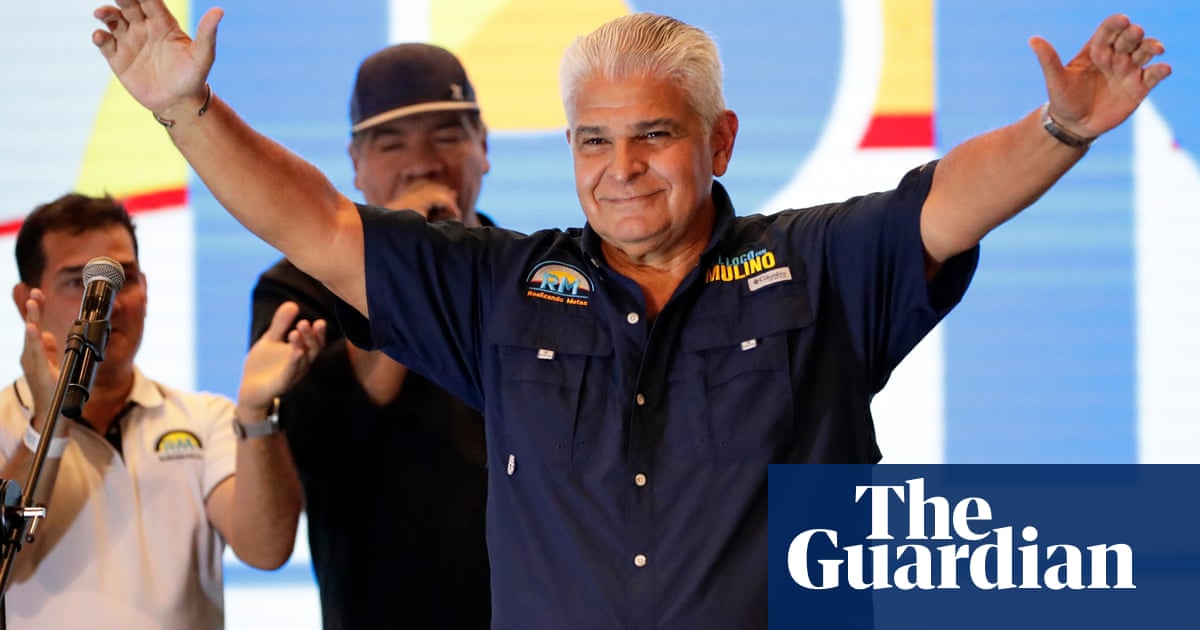
José Raúl Mulino, a former security minister, has emerged from a chaotic campaign to become Panama’s next president — and will now have to address a cocktail of social discontent with just a fraction of the seats in parliament.
Amid record turnout, Mulino won 34.3% of the vote, followed by the lawyer Ricardo Lombana on 24.8% and former president Martín Torrijos on 16%.
Mulino only became a candidate in February when he stepped in to replace former president Ricardo Martinelli, who took refuge in the Nicaraguan embassy in Panama City after local courts ratified his sentence for money laundering.
Mulino himself was at risk of being disqualified by the supreme court until just two days before Sunday’s vote, because he assumed the candidacy without going through party primaries.
In his victory speech, Mulino said his government would welcome business and investment without forgetting “those who are hungry and in need of drinking water across the country”.
“In spite of everything they did to me during the campaign, I won’t take a drop of vengeance against anyone,” he added, before declaring the end of “political persecution” in the country.
The election took place in the shadow of Martinelli, whose popularity despite his conviction for money laundering reflects both the political outsider status he has cultivated and the fact that Panama saw formidable economic growth during his presidency from 2009 to 2014.
The fact that Panama is facing an economic slowdown made the memory of Martinelli’s presidency all the more powerful.
The International Monetary Fund expects growth of 2.5% in 2024, down from 7.5% in 2023.
Panama has also recently been rocked by two unprecedented protest movements, one to do with the rising cost of living and deficient social services, and the other to do with the government’s opaque renegotiation of the contract for the Cobre Panamá mine.
Both episodes revealed public mistrust of the governing Partido Revolucionario Democrático (PRD) and a political elite that has been involved in numerous corruption scandals.
This shone through in the vote for parliament, where the composition shifted radically, with PRD losing roughly two-thirds of its seats and independents surging to become the largest single group, with 21 of 71 seats. Mulino and Martinelli’s party will have 13 seats.
Mulino will have to build a majority through coalitions as he attempts to address a sputtering economy, historic levels of US-bound migration through the Daríen Gap, and a drought that has slashed the number of ships passing through the Panama Canal.
To what extent Martinelli will influence Mulino’s presidency remains to be seen. But he celebrated the victory with a blurry selfie posted on Instagram from the Nicaraguan embassy: “The face of a happy man,” he wrote.
Read More: World News | Entertainment News | Celeb News
Guardian







